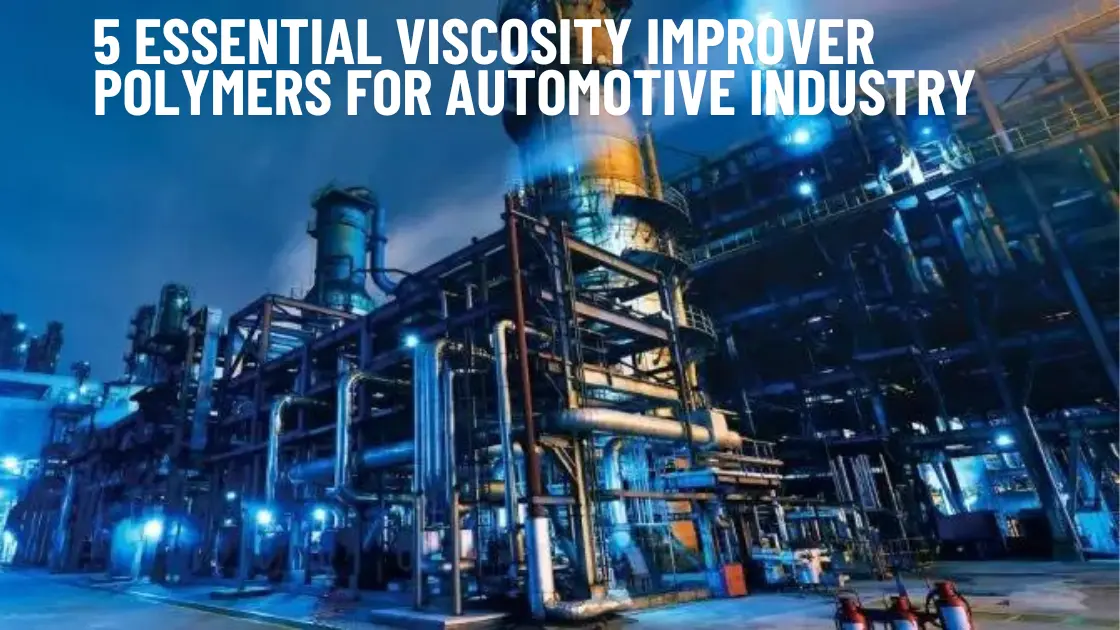In the automotive industry, maintaining optimal engine performance and longevity relies heavily on the use of viscosity improver polymers. These polymers play a crucial role in regulating oil viscosity, ensuring smooth lubrication and reduced friction within the engine components. Here, we explore five essential viscosity improver polymers vital to the automotive sector.
Polyisobutylene (PIB):
Polyisobutylene stands out as one of the most widely used viscosity improver polymers in the automotive industry. Its long-chain hydrocarbon structure imparts excellent thickening properties to lubricating oils, improving viscosity index and shear stability. PIB polymers exhibit amazing resistance to oxidation and thermal degradation, prolonging oil life and maintaining engine efficiency under demanding conditions.
Polyalphaolefins (PAO):
Polyalphaolefins represent another cornerstone in viscosity improvement formulations for automotive lubricants. These synthetic hydrocarbon polymers offer superior thermal stability and low-temperature fluidity, crucial for ensuring optimal engine performance across a wide range of operating temperatures. PAO-based viscosity improvers excel in reducing friction and wear, thereby extending engine lifespan and improving fuel efficiency.
Ethylene-propylene copolymers (EPM/EPDM):
Ethylene-propylene copolymers, including EPDM (ethylene-propylene-diene monomer), serve as versatile viscosity improvers in automotive lubricant formulations. Their elastomeric properties impart excellent shear stability, ensuring consistent viscosity performance under varying operating conditions. EPM/EPDM polymers exhibit exceptional compatibility with mineral and synthetic base oils, making them integral components in multigrade engine oils.
Styrene-butadiene copolymers (SBC):
Styrene-butadiene copolymers feature prominently in viscosity improvement additives for automotive lubricants, particularly in cold-start applications. These elastomeric polymers improve viscosity index and provide excellent shear stability, crucial for maintaining lubricant performance at low temperatures. SBC-based viscosity improvers allow smooth engine startup, reducing wear and friction during critical engine warm-up periods.
Polyacrylates:
Polyacrylates offer a balance of viscosity improvement and dispersancy properties vital for automotive lubricant formulations. These polymers exhibit high thickening efficiency and shear stability, contributing to improved lubricant film strength and wear protection. Additionally, polyacrylates possess excellent detergent and dispersant capabilities, preventing sludge and deposit formation in engine components.
In the automotive industry, the selection of viscosity improver polymers significantly impacts engine performance, durability, and fuel efficiency. Polyisobutylene, polyalphaolefins, ethylene-propylene copolymers, styrene-butadiene copolymers, and polyacrylates represent five necessary polymers in formulating high-quality automotive lubricants.
